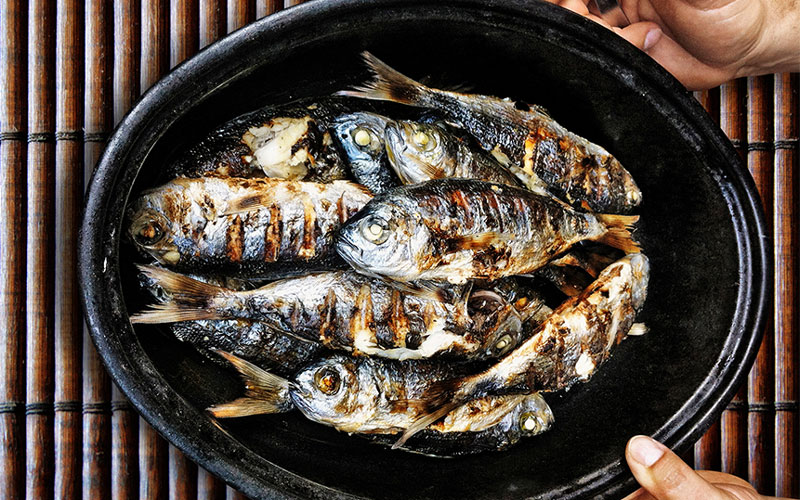Allergic to Fish, Something You Can Do About It

I’ve recently started on the Paleo Diet. I’ve read through your site and others to make sure I’m going about it the right way.
What a revelation! It’s fantastic in its simplicity.
My concern is that when I was about 18 I developed an allergy to fish.
I have no idea how this happened. I ate two or three nights a week growing up at home.
Curiously, this allergy seems to only apply to scaled fish, as I can still eat shellfish. I am 23 years old.
When I eat fish I get terrible heartburn/indigestion, and the last time I tried it, about two years ago, my face started swelling and itching.
I saw an allergist who told me to avoid fish because of the potential for a very serious reaction.
What do you recommend I do?
It seems like eating seafood is a big part of the Paleo Diet.
I’m happy to eat shellfish, but aside from shrimp, it’s often prohibitively expensive.
Obviously, I’m not going to eat fish unless I can “outgrow” the allergy.
I was once allergic to eggs, but I’ve gotten over that now.
Thanks!
Harrison
Maelán Fontes’ Response:
Dear Harrison,
From an evolutionary standpoint, fish allergy is nonsense, as it has been part of human nutrition since, probably, 2-2.5 million years ago.
Allergy is an exaggerated reaction of the body’s immune system against foreign proteins, where the body’s common mucosal immune system (located in the gut, nose, eyes, lungs, etc) increases the production of cell (eosinophils) and/or antibody (IgE) mediated immune response.
This leads to histamine release throughout the CMIS and signs and symptoms related to allergy, such as inflammation, redness, itching, sneezing, or anaphylactic shock if acute vasodilatation occurs.
But how or why do fish proteins trigger an allergic reaction?
- An early exposure to food proteins, let’s say before 3-6 months of life, when the gut-associated lymphoid tissue is immature increases the risk of allergy later in life.
- An increased intestinal permeability allows food proteins to pass through the gut barrier and skip M-cell mediated oral tolerance, inducing hyper-sensitivity to those proteins.
- In the last years, a wide body of scientific papers has shed light on what is known as the “hygiene hypothesis”. A correlative association has been shown between increased use of antibiotics and vaccines and inflammatory conditions such as multiple sclerosis, type 1 diabetes, and allergy, during the last 50 years. Human beings are less exposed to microorganisms, such as intestinal bacteria than they used to be. This leads to a lack of immune regulation mediated, in part, by gut and environmental microorganisms.
How can the Paleo Diet help you?
Of course, we can not address point 1 but we can do something regarding points 2 and 3.
The Paleo Diet is free of some food known to increase intestinal permeability such as cereal grains, legumes (soya and peanuts), alcohol, tomato, potato, quinoa, amaranth, egg white, alfalfa sprouts, and root beer (quillaja extract).
By eliminating those foods and eating a diet based on grass-produced or free-ranging meats, shellfish, vegetables, fruits, and nuts your intestinal permeability will decrease and your immune system will be less challenged by those food proteins (fish) and perhaps we can restore immune tolerance to a normal food as fish.
Regarding point 3 we suggest you take a probiotic supplement (6-9 billion/day) for several months.
Other supplements that can help you improve intestinal permeability:
- Pre-biotic 2-4grs/day
- L-glutamine 0.2grs/kg body weight one month, then 0.1gr/kg
- Zinc 25mg/day
- Vitamin D 2000 IU
- Omega-3 fatty acids EPA+DHA=2.6grs/day
I hope this helps.
Maelán Fontes Villalba – MS Ph.D. candidate in Medical Sciences at Lund University, Sweden